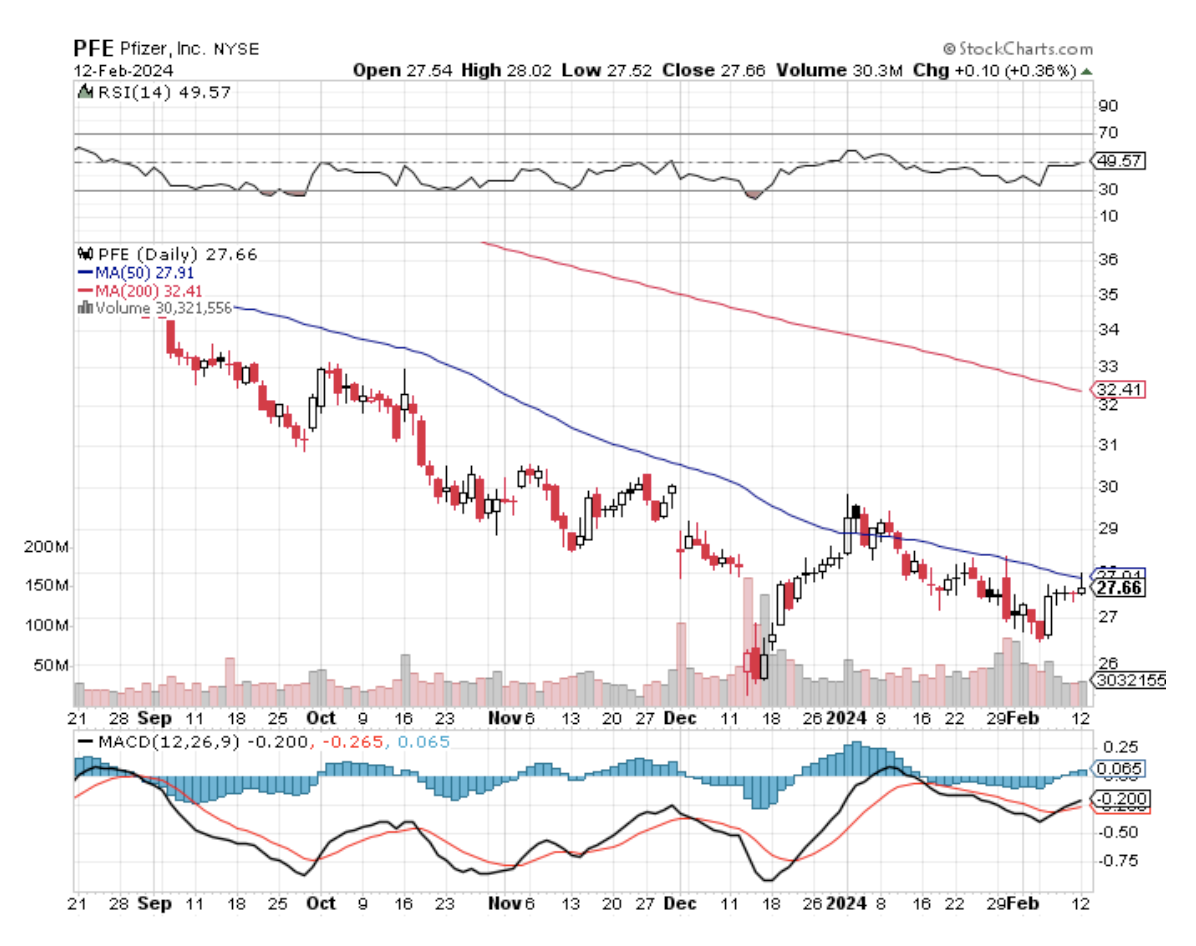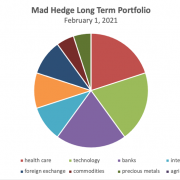Tackling The Big C
Super Bowl Sunday: not just a day for football fanatics but a golden opportunity for brands to shine brighter than the halftime show, captivating over 100 million pairs of eyes.
Amid the usual suspects of beers, cars, and fizzy drinks, an unexpected name popped up on the screen: Pfizer (PFE). The Big Pharma titan threw its hat in the ring with a multimillion-dollar message that could be summed up as a toast to science itself.
Here’s how Pfizer’s ad went: animated legends of science — from Newton to Einstein, alongside Rosalind Franklin and Katalin Karikó — belting out an ode to medical milestones to the tune of Queen’s “Don’t Stop Me Now.” Add a dash of whimsy with a cameo from penicillin and a crooning tardigrade, culminating in the heartwarming sight of a young cancer survivor leaving the hospital to applause.
This cinematic piece wasn’t just about selling a product; it was about selling a dream, one where science leads the charge against cancer, underscored by Pfizer’s new rallying cry, "Outdo Yesterday," and a nudge towards LetsOutdoCancer.com.
Shrouded in mystery is the exact price Pfizer paid for this 60-second spectacle — shortened from its original 90-second glory.
But, my sources say that the pharma giant shelled out around $6.5 million to $7 million for half that time, making Pfizer’s splurge no drop in the bucket, especially juxtaposed against a recent $15 million pledge to the American Cancer Society.
This grand gesture comes at an important milestone, marking Pfizer’s 175th year and a concerted push to cast a vibrant, forward-looking shadow across its brand, appealing to the public, investors, and its own ranks alike.
After all, it’s an open secret that Pfizer’s looking to weather a storm, with its COVID-19 vaccine sales dwindling.
Despite riding high on the COVID-19 vaccine wave in partnership with BioNTech (BNTX), raking in roughly $57 billion across 2021 and 2022, Pfizer's financial seas have been anything but calm. The stock’s dramatic descent from its late 2021 peak paints a picture of uncertainty, rooted in the sobering performance of its COVID-19 titans, Comirnaty and Paxlovid.
Yet, as we can see, Pfizer’s narrative isn’t one of gloom. Stripping away the pandemic’s shadow reveals a company in robust health, with a 7% operational growth and a record seven FDA nods in 2023 alone.
Speaking of making it rain, Pfizer's not just throwing its COVID-earned billions around for kicks. For example, they've laid down a cool $43 billion on the table to bring oncology biotech Seagen into the fold.
This acquisition isn't your everyday shopping spree either. It's a move designed to transform Pfizer into the leader of the antibody-drug conjugate (ADC) movement in cancer therapy, potentially beating the likes of Bristol Myers Squibb (BMY), AbbVie (ABBV), and AstraZeneca (AZN).
Think of this move as the biopharma eyeing Seagen's $3 billion in 2023 revenue and saying, "Let's crank this up to $10 billion by 2030." Ambitious? Absolutely. But if anyone's got the blueprint to make it happen, it's Pfizer.
The pivot to cancer isn’t just a strategic shift but a play for the heartstrings of a global audience. With cancer touching lives universally, Pfizer’s Super Bowl gambit seeks to transcend its COVID-19 narrative, aiming for a connection that’s both deeper and more universal. The deliberate omission of its vaccine from the ad speaks volumes, aiming to bridge divides in a viewership as diverse as the Super Bowl’s.
Still, the true measure of its Super Bowl splash — beyond the ad’s immediate sparkle — may lie in subtler indicators, from stock movements to talent retention and a potential surge in interest around its cancer-fighting mission.
Whether this move translates into a long-term win for Big Pharma titan remains to be seen, but for now, the spotlight isn’t just on the Chiefs’ victory but on Pfizer’s leap into the hearts and minds of millions, championed by science and the indomitable spirit of innovation. I suggest you buy the dip.


